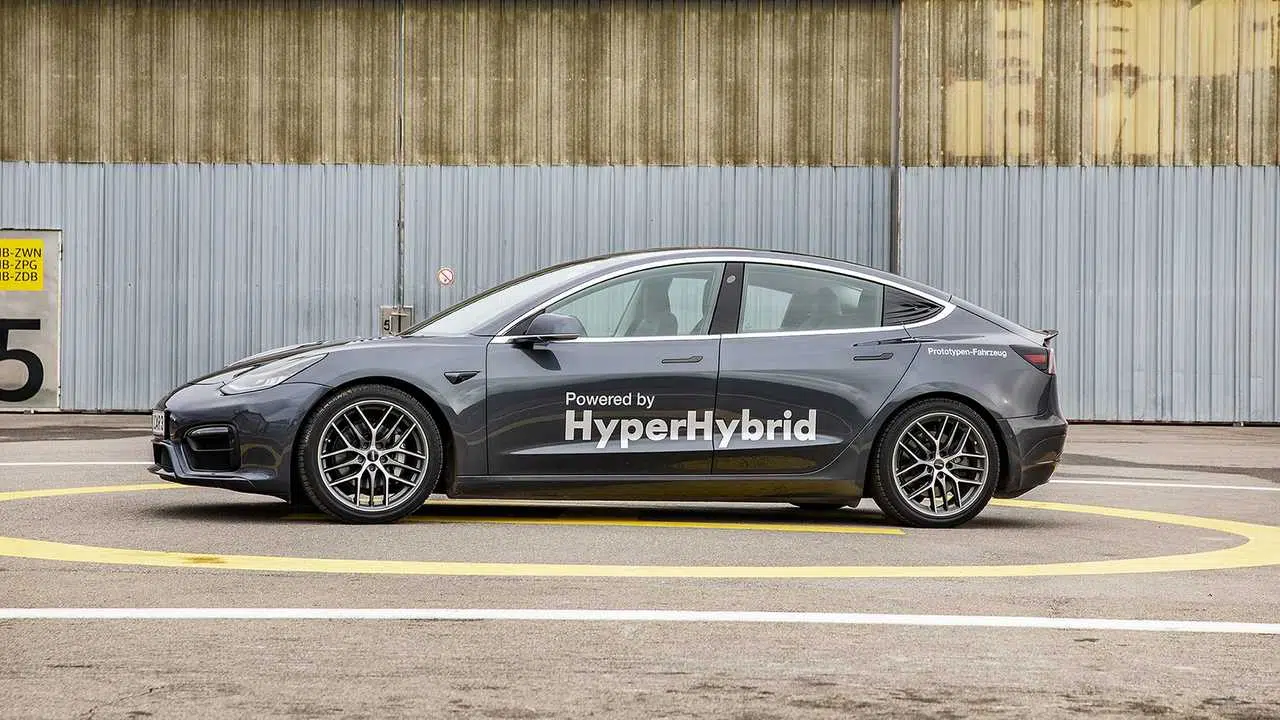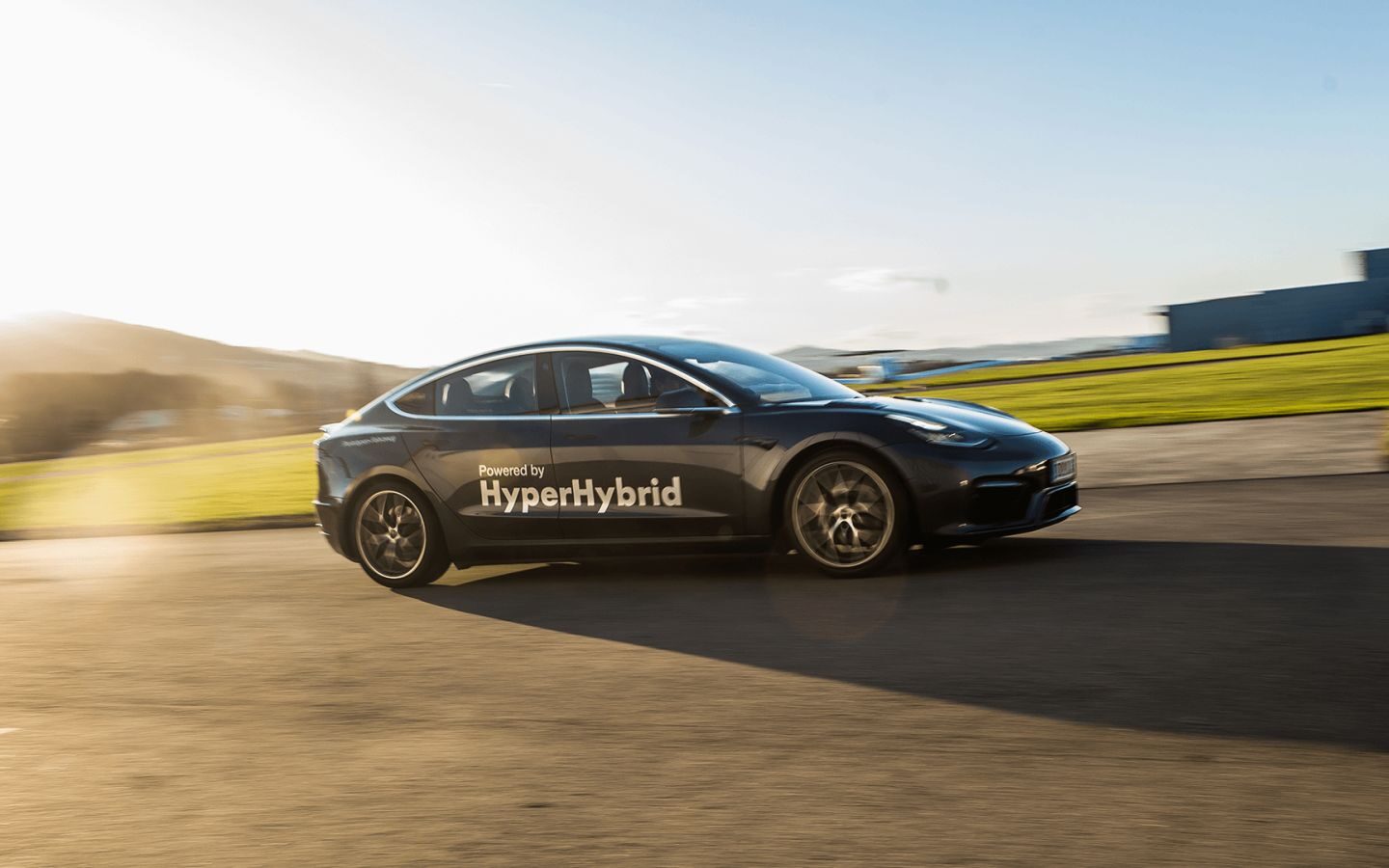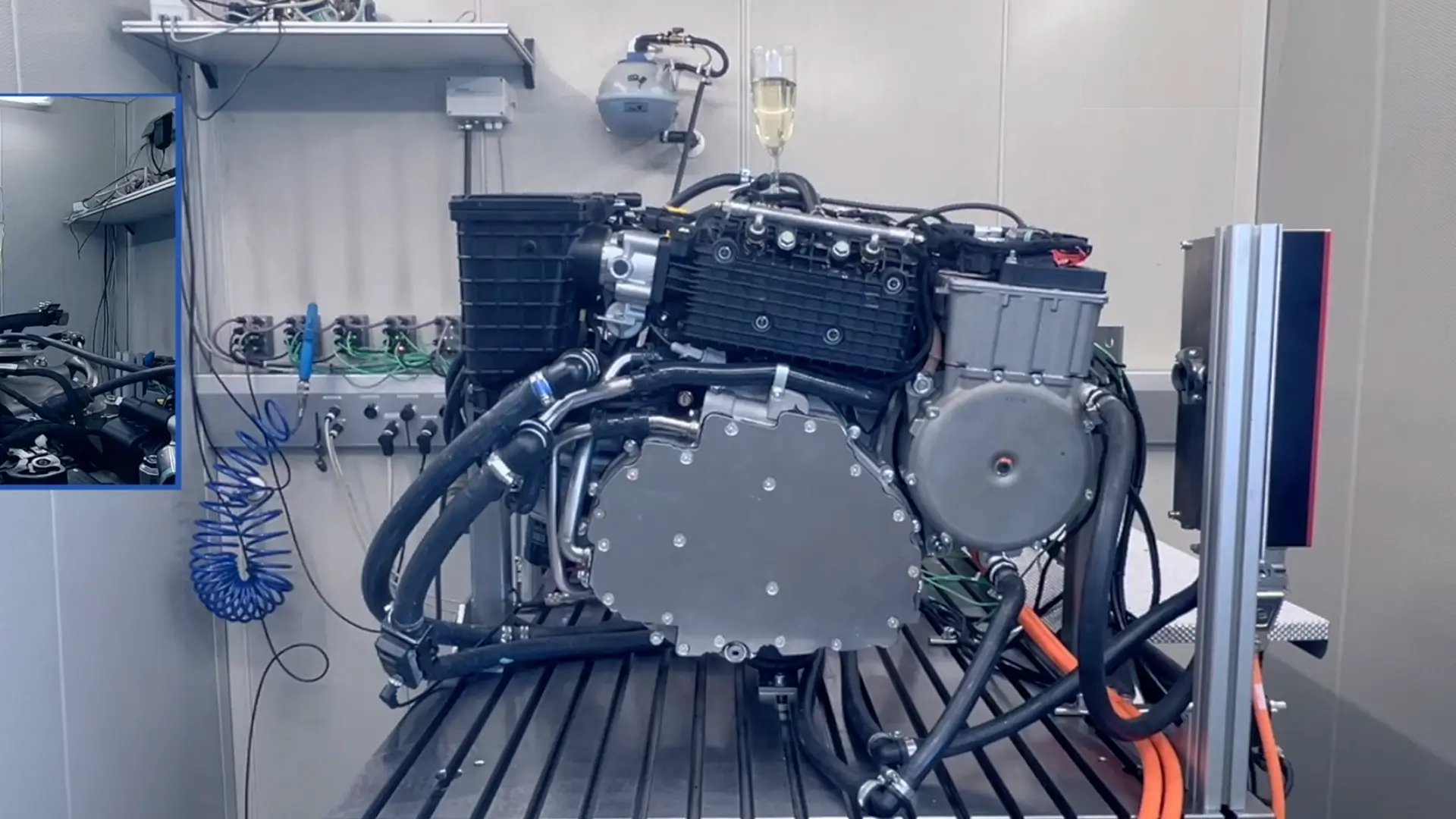They don't see it as a mistake. A champagne flute was placed over this twin-cylinder engine to prove there were no vibrations.
It is an established fact that among internal combustion engines, those with twelve cylinders in a V-shape are the most balanced and have the least vibrations of all – to prove this, we also carried out the coin test on the S-Class 600 (W 140).
Conversely, straight-six engines generate excessive vibration, but a small Austrian company called Obrist claims to have a two-cylinder engine with less vibration than a V12. like?
They didn't just stop at words and prove it. But they didn't use a coin, they used a flute with champagne. And as we can see in the video below, even when the revolutions rose to nearly 5,000, the flute remained perfectly stable on the engine, and not a single drop of the precious liquid was wasted.
Zero vibration generator
No wonder Obrist called his little engine the “Zero Vibration Generator” (ZVG). What is the “black magic” that turns a two-cylinder engine into a super-smooth one?
The big secret is the use of two crankshafts that rotate in opposite directions, which eliminates primary vibrations. In other words, this twin-cylinder engine has one crankshaft for each cylinder, and the gears of one of them are also lined with rubber to reduce noise.
A flywheel or flywheel was also incorporated to further reduce vibrations, including those caused by forces external to the engine, such as those from the oil pump in the lubrication system (which is done using a dry sump). Finally, so as not to disturb the silent experience of driving a tram, the ZVG was mounted in a box with sound-absorbing properties.
The result is a two-cylinder engine with virtually zero vibration and noise. What makes this engine ideal for its purpose: acting as a range extender in electric cars.
This means that the ZVG's function is not to move the car, but to generate energy to feed the car's electric battery. The most appreciated qualities of the tram are precisely the absence of noise and vibration.
Less weight and much more independence
Obrist is no stranger to automotive causes. A few years ago, they introduced a modified Tesla Model 3 to be a hybrid — a HyperHybrid — as a proof of concept. Now we’re taking a closer look at what makes it tick.
The first thing that made the leap from the Model 3 to become a HyperHybrid was its battery. In its place, a smaller unit, from the Oberst itself, with just 17.3 kWh (air-cooled, liquid-cooled optionally). The ZVG was mounted up front instead of the frunk.
The two cylinders are very compact (688mm x 503mm x 269mm) and weigh 129kg (including inverter and controller). The battery is made of cylindrical cells (18650 format) and weighs 97.6kg (197Wh/kg at module level).


Combined with the two (already with the fluids needed to run the engine and other peripherals), Obrist says it weighs around 250kg. That’s just over half the weight of the Tesla Model 3’s 75kWh battery pack itself. In other words, more than 200kg disappears from the car, which pays dividends on several levels, including consumption.
Naturally, with a much smaller battery, the 100% electric range has also been reduced considerably, with an announced 96 km (WLTP). For everyday use, it should be more than enough to cover the needs of many. On the other hand, with ZVG on, the autonomy “stretches” to almost 1,000 km.
This translates into a real consumption, says Obrist, of 2.0 l/100 km, which can only be justified by the high efficiency of this naturally aspirated two-cylinder, 999 cm long car.3The Austrian company claims a thermal efficiency of 45%, which is great for a four-stroke gasoline engine, and on par with many diesel engines.
This high efficiency can be partly justified by the fact that it operates only as a generator. This means that it will operate mainly under stable systems, and can therefore be optimized in this sense.
Let's take a look at the numbers: This naturally aspirated two-cylinder engine delivers 45 kW (61 hp) at 5,000 rpm. However, if we replace the gasoline with synthetic methanol (e-methanol) – another Obrist project – the output increases slightly, to 50 kW (68 hp).
Cheapest electricity
Obrist believes that combining an electric drivetrain with a compact, cheap and efficient thermoelectric generator is the best solution for cheaper electric cars at the moment. This is because by using a much smaller battery, it will reduce the high weight (and craftsmanship) of the car.


Electric cars with range extenders—technically hybrids—aren’t exactly new. BMW used a motorcycle engine for this function in the i3 REx, while today we have the Mazda MX-30 R-EV with a Wankel engine.
In Mazda's case, the Wankel option is based on many of Obrist's premises: a light, compact, vibration-free generator. However, the cost and efficiency of the Wankel is another topic for discussion.
Obrist highlights the advantages of his solution. We waste less time charging and refueling, we don’t rely on the still insufficient and unreliable public charging infrastructure, and it allows us to significantly reduce emissions compared to combustion cars. Using 2.0 l/100 km as a reference, the HyperHybrid emits 46 g/km of CO22.
At a time when the electric market is cooling down and the hybrid market (in general) is booming, Obrist seems to have a golden opportunity here to make its HyperHybrid technology a success.
Updated August 11, 2024: More data about ZVG added.

“Wannabe internet buff. Future teen idol. Hardcore zombie guru. Gamer. Avid creator. Entrepreneur. Bacon ninja.”

